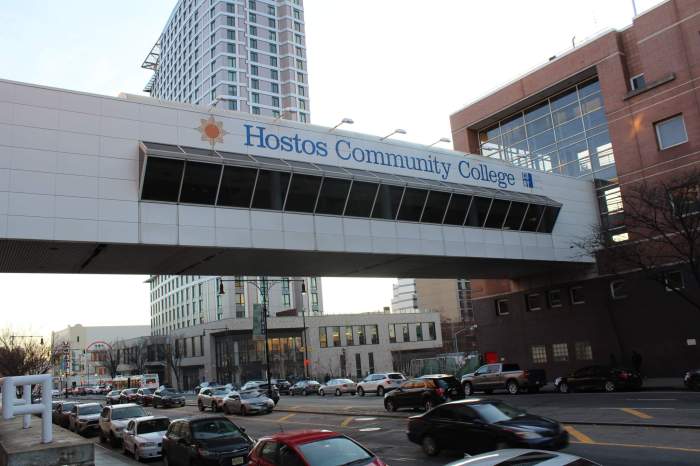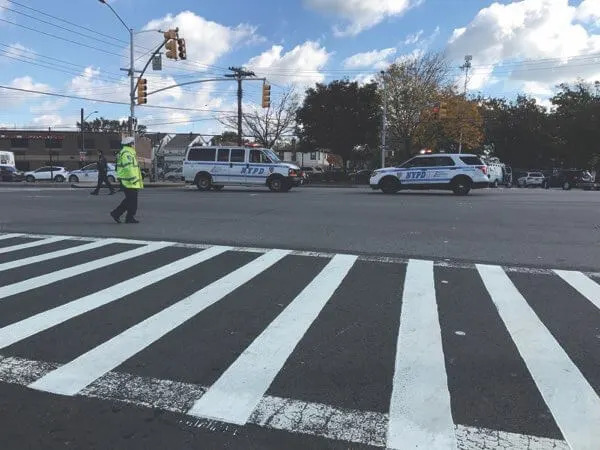The Holiday Inn on West 26th Street looks like any other chain hotel in Manhattan.
It has a clean, small lobby and an attentive staff. A stack of USA Todays sits by the elevator, a vat of lemon-flavored water against the wall. Muzak playing. Tourists trailed by luggage for short-term stays. But there are longer term guests, too: some of the more than 60,000 homeless individuals in NYC who seek shelter every night.
Every winter, cold weather draws attention to unsheltered New Yorkers who find refuge on the subway, dragging heavy blankets and cardboard boxes into corners many commuters are eager to ignore. But the vast majority of New York’s homeless population accepts the beds the city offers as part of its long-standing legal (not to mention moral) responsibility to offer shelter. Because more people seek shelter than the city has shelter beds, the Department of Homeless Services has increasingly turned to other options, including hotels.
Some of those long-term hotel guests gathered just outside the automatic doors on a recent visit to the Holiday Inn, clutching hot beverages and cigarettes. Charmel Lucas, 50, has stayed at the site since around March, one in a string of hotels and shelters via DHS she has stayed in since Superstorm Sandy, when she and her partner lost a space in a friend’s place in Coney Island.
“We’ve just been stuck,” she said.
There are various downsides to living in a hotel, and the jumbo paper cup of Lipton tea her partner held is an example of one. There is no kitchen in their room, just a separate shared area where they’re served food. Lucas’ partner wasn’t able to microwave his tea, so he had to go find some at a deli.
Residents don’t even have their own room key, relying on nonprofit staffers to let them into their room. There are rules about room-cleaning and congregating outside the hotel that have hotel residents looking over their shoulders. The setup wasn’t great for a woman with a wheelchair Lucas knew, or for those with mental health issues or needs that require a social worker or a therapist more than a concierge.
Then there’s the cost to the city. DHS says the average hotel room runs $225 a night with services like staffers, compared to $150 total in a certified shelter, or $85 in so-called “cluster” sites where homeless individuals live in private apartments often in subpar conditions. (Mayor Bill de Blasio has pledged to stop using both cluster sites and hotels in favor of new, central and service-full shelters, but as cluster sites have closed the number of hotels used has increased to 90 from 84 when he announced his homelessness plan in February).
Costs for rooms in Manhattan could rise to $549 a night near Times Square, according to an analysis in April from city Comptroller Scott Stringer.
The low-end side of the hotel spectrum is worse for other reasons. Two of the 57 hotels used to shelter homeless families with children in NYC were the sites of a prostitution and trafficking enterprise, and residents saw evidence of prostitution and one was even offered work as a prostitute herself, according to a report released by the city’s Department of Investigation last week. The report urges DHS to improve vetting of hotels to avoid those with criminal behavior. The NYPD is conducting a security review and DHS says all hotels used as shelters have 24/7 security. But the agency has agreed to implement DOI’s recommendation to occupy hotels identified with potential criminal activity in their entirety, if they have to use them at all.
Still, Lucas and other Holiday Inn residents count themselves lucky. One who gave her name only as S. remembered stays in a Bronx hotel infested with rodents and roaches. Lucas recalls bunk beds in another hotel uptown. At least at the Holiday Inn, they have some private space and a restroom of their own, and a working relationship with the staff. The inn, which serves adult families without young children, shows no evidence of the criminal incidents the DOI report uncovered in 34 other hotels used as shelters: no arrests took place at the address in 2017, according to the NYPD.
But Lucas is eager to move on. She is a volunteer with Picture the Homeless, an advocacy group, and works in delivery for Uber Eats and Postmates, walking or taking public transportation to apartments she’d love to live in someday. Making a delivery or re-entering the hotel from work in her dress winter coat, you wouldn’t have any idea she didn’t have a permanent home to return to, that she was stuck in limbo.
“I ain’t had a tub in years,” she says before heading for the hotel’s automatic doors, where she’ll wait for the elevator like any other guest.

















